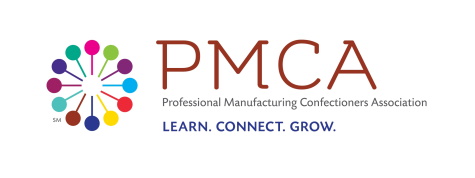
Javier A. Bastidas, Leland, Parachini, Steinberg, Matzger & Melnick LLP
Presentation: US and Canadian Legislative Pathways
The regulation of the manufacture, distribution and sale of cannabis products can be a minefield. There is a patchwork of state permissions and restrictions, all under the general umbrella of an outright federal prohibition of commercializing the industry. Canada is the second nation in the world to have federally legalized the sale of recreational cannabis, including edibles. With the eyes of the cannabis industry, globally, on Canada, there are many lessons to be learned one year into a post-legalization regime, some of which may be instructive for state and federal governments considering similar legislative changes. The path to legalization has not always been a smooth one, and the Canadian experience brings with it both elements of laws and processes that served the industry and consumers, and those which did not. In this session, we will explore the legislative framework for the manufacture, distribution and sale of edible cannabis in Canada, and what that may mean for U.S. businesses. We will dig into important considerations such as regulatory licensing, packaging, manufacturing, labelling, branding and promotion, import/export, as well as explore some of the potential cross-border business opportunities, and challenges, posed by the differing legal regimes across Canada and the US. Looking inward at the US, we will explore the opportunities for commercial food producers to participate in the cannabis economy and what to expect, as well as how state regulatory agencies are approaching infused food and beverage products. We will also consider how social use policies and regulations impact the development of the industry.
Javier graduated from Dartmouth College and earned his J.D. from Tulane Law School, where he also received his European Legal Certificate. After graduating, he moved to San Francisco to work in talent management. For two years he then served as the Corporate Affairs Manager for a start-up company in Silicon Valley. He is currently an attorney with the law firm of Leland, Parachini, Steinberg, Matzger & Melnick LLP. His practice focuses on Business Transactional and Intellectual Property matters for California cannabis companies.

Lawrence Blume, RTI International
Presentation: Cannabis Edibles Pharmacology
This symposium will provide critical, science-based information on the pharmacology and physiology of cannabis-infused products and ingredients. Lawrence will focus on the importance of cannabinoid physiology and pharmacology, as they set the stage for dosing, onset and duration of effect, safety, and labeling of products. Attendees will gain an appreciation and full understanding of our body’s endocannabinoid system and its three components: endocannabinoids; enzymes responsible for the synthesis and degradation of endocannabinoids; and cannabinoid receptors including their distribution and mediated effects throughout the body. Building on this foundational understanding, Lawrence will highlight how the principles of cannabinoid pharmacology are applied to aid in developing standards regarding the pharmacokinetics of cannabis-infused edibles. He’ll address oral administration and effects of the food matrix on bio-absorption, timing and distribution of cannabinoids within the gastrointestinal tract and system, metabolism and excretion. The presentation includes a specific focus on CBD and dose-effect strategies, short- and long-term safety considerations including potential drug interactions (e.g. liver enzymes), age-related considerations, and cognitive function
Lawrence is passionate about collaborative partnerships that bring innovative solutions to challenging research and development roadblocks. As a lead advisor for food science and biotechnology innovation, Lawrence brings extensive experience leading technology-focused opportunity forecasts in support of competitive advantage, product differentiation, and commercialization strategies for Cleveland executives at companies ranging from early startups to Fortune 500s. He’s helped life science, food & beverage and consumer goods companies develop technical insights and business models that unlock and yield disruptive innovation in core products and markets.
Over the last decade, Dr. Blume has applied his background in cannabis physiology and pharmacology towards novel commercial applications in the medical, CPG, and food and beverage spaces. He’s worked with ingredient suppliers, large food and beverage companies, and scientific organizations including the Institute of Food Technologists and the International Cannabinoid Research Society on projects related to understanding the science of cannabis and CBD. Notable work includes helping manufacturers and brand owners understand the science behind cannabis including the pharmacodynamics and pharmacokinetics of cannabis-infused edibles and safety considerations for product development. Previously Lawrence worked in academic technology transfer and early-stage life science investment funding to support commercialization and growth of emerging technologies and companies. He received a Ph.D. in Physiology & Pharmacology from Wake Forest School of Medicine and a B.S. in Biology with a minor in Biochemistry from Duquesne University.

Francis J. Boero Ph.D., Gavenum LLP
Presentation: Social Responsibility & Cannabis-Infused Foods & Industry Next Steps
Governments moving cannabis from an illicit to a regulated enterprise react with reluctance, prohibition, or apathy towards infused foods. In extreme cases, edibles are prohibited, in most areas edibles are tightly regulated for child safety, and unfortunately, food safety is a second thought in many regulators’ minds. For many professional manufacturers the landscape is forbidding, yet the opportunity for a fact-based social safety and responsibility program is significant.
The discussion will review historical cannabis use as well as the latest epidemiological research on young adult and child exposure to regulated cannabis.
Dr. Francis Boero is an academically certified, scientific technology business specialist returning to food science after over 30-years in healthcare and research. After an early career in hospitality services, an interest in research led him to return to earn degrees in Information Science as well as a Ph.D. in Physics at the University of Southern California.
Post-graduation, Dr. Boero led R&D operations, and later commercial divisions for scientific and analytic instrument businesses. After additional education in microbiology and process validation at the University of Minnesota, Francis held a series of US and international positions for Johnson & Johnson. During his 21-years with J&J, he successively led business divisions in consumer wellness, surgical products, and laboratory analytics. Most recently, he served as worldwide services VP for Ortho-Clinical Diagnostics under a private-equity agreement with J&J.
Concurrent with positions at J&J, Francis began offering process validation services to start-up food processors in Puerto Rico, Panama, and the US. This extracurricular interest led to his resuming studies in food science and achieving his CFS in 2016. Dr. Boero currently works for Anthea, a specialty firm providing product integrity systems for US and Canadian cannabis producers. He is serving as the group leader for IFT’s Legalized Cannabis and Hemp Edibles working group.

Joel Fink, Fantasy Candies Chocolate Factory
Presentation: Product Manufacturing – Chocolate Cannabis Infusion
This course will be addressing the challenges of producing the perfect cannabis infused chocolates, from taste to test. How to determine the best cannabis product in order accomplish desired results including complete homogenization and taste of the finished chocolate edibles. Flavors and textures, from full spectrum cannabis vs. isolated cannabis, as well as their effects, and how they are perceived and accepted by the consumer. Trends to follow for future products in a developing industry.
Adding functional ingredients to cannabis infused chocolate to achieve certain results will be discussed, such as Probiotics, Melatonin and Omega fatty acids. We will then address combining CBD and THC into chocolate, using different ratios for different needs. Working with a variety of ingredients, keeping them appropriately separated, including discussion of allergen concerns, declarations and cleanup will be covered.
Sourcing of all ingredients, from chocolate to cannabis, having a trusting relationship with suppliers, and how it will contribute to a high quality finished product. We will then discuss the production of infused chocolate, how to incorporate different inclusions, types of equipment which work best, molding vs. enrobed, and other production methods. Industry regulations (and how they are changing), meeting required tolerances, third party testing, packaging and ingredient/nutritional labeling will be covered.
Joel Fink has over 30 years of innovation in the chocolate industry. As founder of Fantasy Candies Chocolate Factory in 1990, he began developing a wide range of chocolate products; many of which revolved around healthy inclusions. In 2007, Joel took his research on the health benefits of dark chocolate to the Cleveland Clinic Wellness department where they teamed up to develop a line of chocolates created to meet their healthy eating guidelines. Joel soon began working with probiotics as an inclusion, which required him to develop a system to homogenize ingredients, while keeping the chocolate perfect in taste and texture.
After joining a research team in 2017 to develop a natural product for helping children with Autism, Joel discovered CBD’s had been used successfully in improving autistic behavior. He dedicated the next year to understanding CDB’s and how to work with them safely and effectively.
Joel, a member of IFT,(International Food Technologists) and RCI, (Retail Confectioners International) is a consultant to the medical marijuana industry in the state of Ohio. Working with a vertically integrated cannabis facility, he produced the first certified cannabis edible chocolate in the state. Joel started Chocolate Inclusion Solutions in 2018 to develop cannabis infused chocolates, sustainably grown, traceable and tested. He teaches a class called “CBD 101, Truth vs. Myth” to encourage public education in the area of cannabis.

Chad Finkelstein, Dale & Lessmann, LLP
Presentation: US and Canadian Legislative Pathways
The regulation of the manufacture, distribution and sale of cannabis products can be a minefield. There is a patchwork of state permissions and restrictions, all under the general umbrella of an outright federal prohibition of commercializing the industry. Canada is the second nation in the world to have federally legalized the sale of recreational cannabis, including edibles. With the eyes of the cannabis industry, globally, on Canada, there are many lessons to be learned one year into a post-legalization regime, some of which may be instructive for state and federal governments considering similar legislative changes. The path to legalization has not always been a smooth one, and the Canadian experience brings with it both elements of laws and processes that served the industry and consumers, and those which did not. In this session, we will explore the legislative framework for the manufacture, distribution and sale of edible cannabis in Canada, and what that may mean for U.S. businesses. We will dig into important considerations such as regulatory licensing, packaging, manufacturing, labelling, branding and promotion, import/export, as well as explore some of the potential cross-border business opportunities, and challenges, posed by the differing legal regimes across Canada and the US. Looking inward at the US, we will explore the opportunities for commercial food producers to participate in the cannabis economy and what to expect, as well as how state regulatory agencies are approaching infused food and beverage products. We will also consider how social use policies and regulations impact the development of the industry.
Chad Finkelstein is a partner at Dale & Lessmann LLP, and founder and chair of the firm’s franchise practice group and cannabis practice group. He is a transactional lawyer and a registered trademark agent, and practises in the areas of corporate law, M&A, franchise law, intellectual property law, cannabis law, information technology law, advertising/marketing law and gaming law. In 2018, he was selected as a winner of Lexpert’s Rising Stars award, recognizing Canada’s leading lawyers under 40 years old. He has been recognized by his peers as a ranked lawyer in such publications as Lexpert, Who’s Who Legal: Canada, Chambers Canada, The Best Lawyers in Canada and Franchise Times. He contributes regular columns on business, cannabis, franchising and branding legal issues to the National Post and The Globe & Mail, and has been an interview subject on these issues in the Globe and Mail, National Post, the Canadian Press, and on CTV, CBC, BNN, CityTV, CH News and numerous radio news programs. He is also a guest lecturer at the University of Toronto.

Michelle Frame, Victus Ars Inc.
Presentation: Basics of Candy Formulating
Michelle Frame founded Victus Ars, Inc., a confectionery consulting business in Chicago, IL. in June 2014 after more than 20 years at candy (and related) companies. A variety of bench top confectionery equipment allows Michelle and the Victus Ars team to develop a wide range of prototype samples for clients. Additionally, Michelle travels to customers’ facilities to review processes for efficiency, train operators on confectionery techniques and provide support for new product start-ups.
Previous to Victus Ars, Inc., Michelle was food innovation director at The Swiss Colony. There, she implemented a recipe software system, a stage-gate software system and formalized the commercialization process. In addition, she managed the development of 250+ new items for The Swiss Colony food gift catalog and designed two lines of co-branded petits fours.
Other technical management roles in Michelle’s career included R&D director at Kerry Ingredients and Flavors – Sweet BU and technical director at QA Products. Michelle’s bench top and production skills were honed at Mantrose, Just Born, and M&M/Mars.
Michelle has a degree in food science from Purdue University. She is facilities chair and a past president of National AACT, a student mentor and panning instructor for PMCA and has instructed the chocolate panning lecture and lab at the University of Wisconsin-Madison Confectionery Residence Course for the past 10 years. She is active in NCA and IFT as well.

Laurie Gerbers, Blommer Chocolate Company
Presentation: Tackling Food Safety
The Food Safety Modernization Act, passed in the United States in 2011, was a major reform of previous US food safety laws. It involved a shift in focus from responding to food contamination events to prevention-based controls for food manufacture, harvesting, processing, packaging and storage. This presentation will cover the background and rules of FSMA, Preventive controls for Confectionery Plants, and Good Manufacturing Practices associated with food and tools to develop a Food Safety Plan. Attendees will realize the importance of food safety and the requirement to provide a safe, quality, legal and authentic product to their customer. Complying with Food Safety Culture development will lead to improvements and protecting your Brand.
Laurie A. Gerbers is the Corporate Director of Quality for Blommer Chocolate Company, the largest cocoa processor and ingredient chocolate supplier in North America. Prior to joining Blommer Chocolate in 2017, Laurie worked for Kerry for thirteen years in a variety of quality and operations positions. During that time, Laurie was involved in a variety of acquisition, integration, and standard setting activities in a range of product categories. With over fifteen years in the food industry, Laurie is very passionate about food safety and the impact we have as producers and consumers.

Linda Gilbert, EcoFocus Worldwide
Presentation: Inside the Mind of the Edibles Consumer
The legalization of cannabis infused candies, chocolates and snacks is spreading across the nation. It is now important to understand who are the consumers entering these new categories, and consider where we are headed. As the market grows, where will consumers see the best fit for infused confections and snacks?
This session will examine who is buying candies, chocolates, or other edibles infused with CBD and/or THC, based on a nationally representative survey of 4,000 US adults in 2019. It will compare infused buyers to category buyers overall, and focus on demographic, lifestyle, and attitudinal similarities and differences. It will provide thought leadership on trends and their implications for confection and snack brands.
Linda is a recognized expert on consumer marketing and market research with a specialization in products offering wellness benefits. She has often been described as bringing “the voice of the consumer” to business strategies.
She is the founder of two marketing research companies: HealthFocus International, Inc. and EcoFocus Worldwide, LLC, and works with major national and multi-national companies linking consumer attitudes and nutrition awareness with product benefits to successfully meet the toughest brand and growth challenges.
She has conducted extensive qualitative and quantitative studies for supplement, food, and beverage manufacturers, and their ingredient and packaging suppliers, both in the natural and mass markets. Much of her work focuses on bringing clients the consumer point of view on health and nutrition products. Her experience includes research for the supplement/pharma businesses Centrum, Ross Labs, and Pfizer; the food and beverage companies Campbell’s, Coca Cola, Danone, Kellogg’s, Kraft, Nestle, PepsiCo, and Unilever; the retailers GNC, Walmart, Wegmans, and Whole Foods; the American Heart Association, the American Dietetic Association; and more.
She has a Bachelor of Science degree in Food Science from the University of Arizona, with long held interests in functional nutrition and nutritional biochemistry.

Joan Harvey, Bell Flavors & Fragrances
Presentation: Cannabis in Confections & Snacks: Flavor Insights
Confectioners working with Cannabinoid Extracts want great tasting products, so what flavor challenges do you need to overcome? Attendees can expect to be exposed to the chemistry and terminology of cannabinoids and their flavor terpenes. One may also wonder how to mask /pair flavors with the off flavors. This presentation will help the formulator understand flavor changes with certain confectionary applications and ingredient interactions. Related regulatory issues will also be explored.
I have worked in the Food, Beverage and Flavor Industries for 30+ years. I completed an education in chemistry, while working in the restaurant business as a chef. I started my career at Godiva Chocolatier in product development then also worked for Hershey Foods, and Cadbury, now Mondelez. I moved into the flavor industry and work at David Michael, now IFF, AM Todd now ADM/Wild flavors, Frutarom, now IFF and worked for 5 years at IFF. My career has now taken me to Chicago and I am now working at Bell flavors, a family owned flavor and fragrance company. For the past 15 years I have been leading the R&D teams to develop new flavors and products to surprise consumers appetites.
I became a certified flavorist in the early 90’s. I have served as past president for the Society flavor chemist and Chemical Sources Assoc.
I have a passion for flavors, people, and innovation.

Debra Miller, The National Confectioners Association
Presentation: Cannabis: Regulatory Landscape
Over the past 10 years nearly half of the states in the US have legalized medical and/or recreational marijuana. The 2018 Farm Bill allows for the cultivation of hemp and removed hemp derived compounds, such as cannibidiol (CBD) the schedule I list of drugs. The US FDA, however, still does not permit the addition of CBD in foods and marijuana edibles remain regulated at the state level. CBD, in fact, is an approved drug for epilepsies which, by law, cannot be added to foods. However, CBD is being sold widely in various forms. FDA has initiated work on a regulatory framework. This presentation will review the history of and recent actions on cannabis regulation in the US and provide some insights into the future of regulation.
Debra L. Miller, PhD, is a graduate of Juniata College (Huntingdon, PA) and The Pennsylvania State University with a doctoral degree in Biobehavioral Health and a doctoral minor in Nutrition Science. She is currently the Senior Vice President of Scientific & Regulatory Affairs at the National Confectioners Association where she is responsible for technical leadership on labeling, food safety and other food regulations and serves as staff lead for NCA’s Chocolate Council. Dr. Miller also leads NCA’s nutrition and food policy initiatives, which span local, state, federal and international arenas advocating for science-based approaches. She works closely with government agencies, other trade organizations and NCA members on food/nutrition science and regulatory issues. Dr. Miller has over 20 years of experience in nutrition science and regulatory issues in the food industry with 15 of those years in the chocolate and confectionery industry. Previously Dr. Miller served as Director of Scientific and Regulatory Affairs at The Hershey Company where she was responsible for developing internal and external food policies, which affect food labeling and food safety regulations. Before joining The Hershey Company in 2004, Dr. Miller served as Director of Nutrition Communications for Dupont Nutrition, St. Louis, MO. Dr. Miller was an Assistant Professor at Johns Hopkins School of Medicine where she investigated food intake regulation and led the olestra post-market surveillance clinical trial. She completed a post-doctoral fellowship in obesity treatment at the Harvard Medical School after completing her doctoral degree.

Carolina Mitchell, Ciencia Labs
Presentation: Introducing Oil-Based Cannabinoids into Water Soluble Confectionaries
Cannabis infused foods (edibles) are often considered a safer, discreet, and effective means of achieving the therapeutic or recreational effects of marijuana without exposure to the potentially harmful chemicals produced by smoking. However, making infused cannabis foods has several challenges. The lipophilic character of native THC and CBD molecules affects their bioavailability and inhibits their uniform incorporation into hydro-soluble matrices such as gummies and other candy. Additionally, the flavor profile of edibles is profoundly affected by the flavonoids, terpenes, and other naturally occurring compounds in cannabis, making the creation of great-tasting cannabis-infused products extremely burdensome.
In this presentation, we addressed the chemical composition of the most common cannabinoids, the interactions with hydrogels and carbohydrates, and how to manage the physicochemical properties of cannabinoids to improve the taste of edibles. Furthermore, we examined the problems involved with product development, homogenization, testing, and the methodologies applied to overcome these issues focusing on gelatin, pectin, and starch-based confectionaries.
Carolina Vazquez Mitchell is Chief Scientific Officer for dreamt and Ciencia Labs. Carolina is also the Lab Director for Innova Laboratories, a cannabis testing startup. She is also a founding chair of the Legalization of Cannabis & Hemp Edibles division of the Institute of Food Technologists. To date, she has developed more than 40 cannabis products currently on the market. A gifted academic with more than ten years of experience with organic synthesis and extraction of DNA, RNA, proteins, terpenes, and other pharmacologically active molecules; Carolina’s areas of specialty include organic chemistry and biochemistry research, laboratory testing and operations, good manufacturing practices, good laboratory practices, quality assurance, and R&D for cannabis products, pharmaceuticals, foods, and beverages. As a prior Chief Scientific Officer, Carolina oversaw the development, improvement and overall compliance of products, and ensured continued market leadership in product innovation whilst upholding the highest standards of compliance and food safety. Carolina was featured in Forbes magazine and Dope Magazine , where she was named one of the “Outstanding Women in Cannabis” for 2018. Carolina was also the Head of Research for Power Brands, America’s leading beverage consultancy firm. During her tenure, she led projects for a broad spectrum of companies, nurtured a concept to commercialization for a company with 7000+ restaurants worldwide, and developed products for one of the top five cereal companies in the USA and the most prominent sports drinks brand in the world.

Tony Prange, Baker Perkins
Presentation: Starch-Free Depositing & Dosage Accuracy
As the infused sector grows, edible manufacturers continue to look for more automated production solutions that can deliver end products with high levels of accuracy and consistency.
Drawing on a long history and experience in the design and supply of confectionery cooking and depositing systems, Baker Perkins have developed a range of specialist technologies to address the exacting demands of the sector.
The presentation will cover the issues and solutions for accurate control of piece weights and addition of functional additives, for pectin and gelatin based gummies/ jellies. The issues around the dosing of additives into syrups, in conjunction with depositor weight control set up will be examined and the technical solutions that are available to manufacture consistent infused products at capacities of 100lbs/ hr up to 2000lbs/hr.
Tony is currently the Process Engineering Manager at Baker Perkins based in Peterborough, England. Baker Perkins are a worldwide supplier of food processing equipment for the bakery, confectionery, biscuit, cookie & cracker, breakfast cereal and pet food industries.
Tony has worked for Baker Perkins since graduating in Mechanical Engineering in 1990. After an initial period in engineering design Tony transferred to Baker Perkins process engineering team where he has remained. Tony’s current role is very varied and includes managing Baker Perkins UK Innovation Centre. Here a team of process engineers, food technologists and graduates conduct product and process trials for existing and new clients. Tony specializes in confectionery and has a wealth of experience in starchless depositing and associated technologies. Tony has supported many customers worldwide during both equipment installation and new product launches. This includes a mix of confectionery, nutraceutical and marijuana edible clients. Tony is a regular visitor to the US for both business and pleasure.

Scott Riefler, SōRSE Technology
Presentation: Cannabinoids as Ingredients for Confections: Challenges & Solutions
Medical and recreational markets for cannabis and their related extraction products are expanding and evolving very quickly.
Beyond the “standard” ingredient parameters effecting manufacturing environments such as powder flowability, or liquid viscosity, supply chain considerations for these agricultural materials include: crop to crop variation, an array of extraction techniques/methodologies, intermediates (isolates, broad and full spectrum materials) and their content, stability of the isolates and of course the required food safety/quality associated with various suppliers and their supply chain.
In this session we will demystify CBD grade selection based on application needs and how extracts are converted into workable food ingredients suitable for large scale consumer products in a manner which delivers consistent product integrity, paired with a terrific sensory and culinary experience in a safe and repeatable manner.
Scott Riefler has over 39 years of cultivating and commercializing scientific and technological resources.
Scott is currently Chief Science Officer for SōRSE Technology, an innovation leader of materials development for edible product forms within the cannabis space. He joined SōRSE Technology in June of 2017, he and his team have developed a key water born platform for cannabinoid oils for the beverage and food industry.
This unique platform, branded as SōRSE, addresses all the major hurdles associated with transforming cannabinoid extracts into workable ingredients for confection, food and beverage matrixes. These include compatibility with water-based systems, neutral and clean sensory, uniform dispersion within the matrix, rapid and repeatable bio-absorption, long term stability, clean labeling, perfect dosing and easily incorporation into existing manufacturing lines.
SōRSE is quickly becoming the industry standard and go to for bringing cannabinoids into edible platforms in safe and reliable manner.
Previously he was a member of TIC GUMS leadership Team, a privately held producer of hydrocolloids (gums) systems for the food, nutriceutical and industrial markets.
During his tenure at TIC Gums Scott’s roles included VP of Sales, VP of Science and Technology and President. He led TIC through significant growth cycles and related challenges.
Scott joined TIC in 2000 after spending twenty years in the aerospace industry with industry leader, American Cyanamid/Cytec Industries, serving the aircraft industry with structural adhesives and advanced composite systems. After his role of Global Technical Director, he became involved in mergers and acquisitions, assisting industry consolidation.
He has spent the past 20 years translating and applying his experience to food and beverage system innovation, literally bringing rocket science into the kitchen!
Scott resides with his wife Diana in the Seattle area. He holds a BS in chemistry and is a Certified Food Scientist. Scott is an active member of the Institute of Food Technologists (IFT), National Association of Flavor and Food-Ingredients (NAFFS), Vistage and FEMA. He holds a BS degree in Chemistry awarded in 1979 from St. Bonaventure Univ. Scott has presented at numerous industry and university forums, short courses and classes.

Dérick Rousseau, PhD, Ryerson University
Presentation: Incorporating Cannabinoids into Processed Foods – the Scientific Perspective
While the impending arrival of cannabinoid-containing edibles in the Canadian marketplace has resulted in significant opportunities and efforts being placed on food product development, many challenges remain, including respect of the legal dosage limit as well as how well dispersed the actives are within the food.
Tackling the incorporation of cannabinoid actives in common foods requires an understanding of the technological arsenal available to existing and new players in the marketplace. In this presentation, approaches to adding cannabinoids to common food forms are discussed, with a particular focus placed on emulsions and their inclusion in liquid, semi-solid and solid foods, such as beverages, gel candies and chocolate.
Prof. Rousseau has been teaching food science at Ryerson University in Toronto, Canada since 1998. He earned his Ph.D. on lipid crystallization at the University of Guelph in 1997. He has done research on formation and stability of food colloidal systems (fats, emulsions, gels and confectionery) and how to improve functionality. He has over 160 publications, over 250 presentations and 3 patents.
He has done numerous collaborations with international industrial partners on processed foods, crude oil and personal care products. He is also the editor-in-chief of the Elsevier journal Food Structure.

Quinn Shiskin, Valens Agritech
Presentation: Navigating the Supply Chain – Perspective of Growers, Extractors & Active Suppliers
The world is realizing the demand for consistent, safe and repeatable extracted cannabinoid ingredients processed at licensed compliant manufacturing plants.
Learning why and which process to choose for your product formulation is a major challenge with the lack of knowledge and vast amount of false and misleading information. This talk will give you a common understanding of the difference between extraction techniques and how to select the correct method and resin product for your active ingredient.
Quinn is currently Head of Production at Valens, a vertically integrated world leader in euGMP cannabis/hemp extractions and white labeling value add services. He has developed one of the most diverse and experienced teams in the cannabis sector that is hyper focused on delivering the world safe and repeatable access to cannabinoid products. Under Mr. Shiskin’s direction, the Valens team has developed a highly integrated extraction and processing facility, which today is considered to be a leading edge model. Mr. Shiskin firmly believes it is essential to treat the process like a chef making sure care is taken every step of the way to preserve the natural compounds found in cannabis. He believes the marketplace for products developed from the cannabis extraction process will have a profound effect in competing markets of recreational products and in the pharmaceutical industry as it will lead to many remedies in the medical treatment of disease and ailments.

Brian Sterling, SCS Consulting
Presentation: Consumer & Processor Perspectives on Cannabis Edibles
Consumers remain remarkably naïve about cannabis. At the same time, new products with (often) exaggerated claims about the health benefits of cannabis appear almost daily. This is creating an environment in which misinformation and speculation frequently fill the void in knowledge. So, it would be helpful to have objective data about what consumers really think about cannabis, and edibles in particular.
With products as diverse as gummies, pizza, chewing gum, sauces, health drinks, and body lotions we first need to understand what consumers perceive about cannabis and infused products. This segment will take a broad look at consumer attitudes and perceptions and set the stage for discussion of edibles infused with tetrahydrocannabinol (THC) and/or cannabidiol (CBD).
Brian Sterling is founding partner and President of SCS Consulting, an international management consulting company specializing in strategic issues concerning the food industry, including cannabis-infused products. He is currently acting as Vice President of GS1 Canada’s cannabis value chain optimization program, which envisions a whole-chain (seed to sale), globally scalable traceability infrastructure built on accepted international standards.
He was previously the first President and Chief Executive Officer Safe Food Canada, an organization dedicated to strengthening the quality and consistency of food safety education. For almost three years prior to that, he was Managing Director of the Global Food Traceability Center located in Washington, DC, and from 2006 to 2012, he was the first Chief Executive Officer of OnTrace, the Ontario food traceability company. He has also held senior management roles in a number of consulting firms, including IBM Canada and Fujitsu Consulting, and began his career with the DuPont Company.

Fabian Toader, Swift’s Brands
Presentation: Sophisticated Confectionery Production for the Cannabis Consumer
The infused confectionery creator that seeks to achieve mid-scale production of sophisticated products is faced with many scaling and process questions. Beginning with the strategy of addressing a “refined confectionery” market segment based on unique, rich flavors, we’ve developed techniques in several product areas such as Hard Candy, Chocolate Truffles, The Art and Science of Cannabis Chocolate Panning, and Tablet Press.
Mr. Fabian Toader is a creative and disciplined designer that decided to complement his media and IT skills with ventures into infused edibles. Dedicating his efforts towards two companies, Swifts Brands and Green Labs LLC, Mr. Toader pursued a strategy of refined confectionery and ingestibles using advanced confectionery techniques not common among Washington state cannabis processors. He now has over 5 years in developing unique infused confectionery products.
Limited by early Washington State regulations prohibiting the manufacture of infused gummy candy, Mr. Toader developed full working techniques for hard-boiled sour drops micro-dosed with THC. His further investigations and developments led to production of a broad range of award winning indulgent truffles in the European tradition with fillings ranging from apple crisp to liquid blood orange. Fascinated by the possibilities and challenges of panning operations, Swifts developed a series of infused edibles including chocolate covered hazelnuts, almonds, raisins and traditional chocolate covered malt balls. One of the early developers of true tablet pressed mints, his sugar free Green Tea-Peppermint captured first prize in the 2016 Washington State Dope Cup.
While flavor development is at the core of all of the edibles products he developed, Mr. Toader the first to develop a full spectrum non-edible cannabinoids pharmaceutical tablet, the Essence tablets having won the 2017 Washington State Dope Cup.
Mr. Toader has certifications and training in cannabinoid emulsification and food extrusion technology. He is a member of IFT, and is one of the early members of the LCHE (Legalized Cannabis and Hemp Edibles) working group. He is a member of the Cannabis Alliance, an organization dedicated to an ethical cannabis industry. Fabian and his wife Christina live with their family in Washington.

Seth Wong, TEQ Labs
Presentation: The Cannabis Industry: A Testing Laboratory Perspective
This session will provide a detailed overview of the Cannabis industry from a third party analytical laboratory prospective on technology, methods, Quality Control and Assurance Programs, state rules and regulations, as well as economic factors and the impact of these facets on industry and its implications for a confection company, its’ processes and products, and consumer public health and safety.
Seth Wong is President of TEQ Analytical Laboratories, the first ISO 17025 accredited third-party cannabis testing laboratory in Colorado founded in 2014. TEQ brings superior testing to the cannabis industry through cutting edge technology, vested laboratory expertise and superior quality initiatives and is located on the University of Colorado, Anschutz Medical Campus.
Prior to founding TEQ, Seth began his career in the analytical laboratory industry in 2002 at Industrial Laboratories, an ISO 17025 accredited, third-party analytical laboratory founded in 1945 focusing on food and drug testing. As the President of Industrial Laboratories, Industrial Laboratories analyzes food and dietary supplement products for nutritional labels, label claim verification, microbiological analysis of products and facilities. IL also conducts drug testing in biological specimens, dietary supplements, and food products. The lab also helps companies troubleshoot quality control complaints it receives from customers. IL’s clients range from local mom and pop operations to large multinational corporations and we currently have a number of confectioner clients, as well.
Seth has serves on the Colorado Marijuana Enforcement Divisions rule making stakeholder group for Testing Rules, Sampling, and its newly created Science and Policy Working Group. He also serves on the Denver Department of Health and Environment’s Cannabis Health and Safety Advisory Committee. Seth is the Secretary of the Colorado Lab Council, Colorado’s cannabis lab industry group.
TEQ is also active in shaping the global scientific policy of cannabis. Seth is active in the Institute of Food Technologists (IFT) Legalized Cannabis and Hemp Edibles (LCHE) working group designed to advance food science in edible products and consumer products. He also represents TEQ Analytical Laboratories at the AOAC Cannabis and Analytical Science Program (CASP) seeking to develop international standard methods. Seth also serves on the Board of Directors at Colorado Leads, a pro-business alliance created to help educate the general public about the economic and community benefits of a safe, regulated medical and recreational cannabis industry that consists of 50 major brands in the Colorado Cannabis Industry. Seth has authored a number of articles and presented at a number of conferences and seminars on the emerging cannabis market.
Symposium Moderator

Adrian Timms, Atimms Consulting, LLC
Adrian Timms is an independent consultant, helping outfits to innovate bigger. For startups, and small to large companies, he provides coaching, strategy facilitation and instruction for:
• Business growth innovation roadmap, capability and leadership excellence.
• Product and process technical development, especially for confectionery and food products.
• He also is a guest lecturer to students of innovation and entrepreneurship.
Adrian had technical and consumer business roles in all aspects of innovation with Hershey Company, with Cadbury in the USA, and in the UK, working with familiar brands in several confectionery, snack and food product categories. He then was Senior Director, Confections for Chew LLC, where his team developed products for global food company clients.
A 2018 inductee to Candy Hall of Fame for his services to the confectionery industry, Adrian has a long affiliation with PMCA. He is a past Chairman of the Research Committee, past President and Chairman of the Association. He is currently Chairman of Long-Range Planning and serves on marketing and other committees.
Symposium Lead

Jenna Derhammer, Blommer Chocolate Company
Jenna started working in the food industry in 2004 as her second career. She attended the French Culinary Institute (now International Culinary Center) for a degree in Pastry Arts and received a master’s degree in Nutrition from Drexel University. She has held various roles in product and recipe development at Balducci’s and Ashland prior to joining Blommer. She started with Blommer in 2007 focusing on product development and more recently has shifted focus to applications and innovation. As the applications and innovation manager, she helps customers work through technical challenges in application and helps to generate new and novel concepts. Jenna is passionate about the confection industry and is currently on the board of directors at the Fine Chocolate Industry Association and is part of the PMCA’s research committee.

